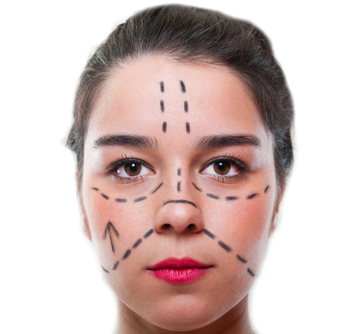Cosmetic surgery: the need for psychological screening
By Liz Lockhart
Since Mental Healthy first published articles on cosmetic surgery and body image we have advocated the need for  psychological screening of patients prior to any surgery. We now welcome the findings of the first study to implement and evaluate a psychological screening tool for cosmetic surgery patients in private practice in the UK. The full findings will be reported at Appearance Matters 5, an international conference which has been organised by the Centre for Appearance Research (CAR), UWE Bristol. The conference is to be held on 3rd and 4th July 2012.
psychological screening of patients prior to any surgery. We now welcome the findings of the first study to implement and evaluate a psychological screening tool for cosmetic surgery patients in private practice in the UK. The full findings will be reported at Appearance Matters 5, an international conference which has been organised by the Centre for Appearance Research (CAR), UWE Bristol. The conference is to be held on 3rd and 4th July 2012.
The popularity of private aesthetic procedures has tripled since 2003. The UK market is estimated to have grown by 17% between 2008 and 2011 which equates to a value of £2.3 billion (Mintel, 2010). It is a sad fact that more people are seeking elective cosmetic surgery from unregulated private surgeons who do not conduct any type of preliminary psychological assessment. This increase in the demand for cosmetic procedures comes at a time when little is known about the impact that aesthetic surgery has on the patients’ psychosocial functioning, adjustment and appearance satisfaction in the long-term.
The researchers at CAR strongly argue that there is an urgent need to pre-screen all patients prior to surgery. This screening process should include an assessment of the patients’ expectations of the possible outcomes. Findings from the study demonstrate the benefits of pre-screening as a mandatory component of cosmetic surgery assessment.
Professor Nichola Rumsey and Dr Alex Clarke, CAR researchers, have developed a cosmetic surgery screening tool based upon years of research and clinical experience. The majority of surgeons who were sampled have indicated that they would be very happy to trial this cosmetic surgery tool.
Professor Rumsey says ‘This new screening process is designed to provide a quick and efficient method through which prospective patients can be screened and assessed in more depth where necessary, and then guided to alternative care where appropriate. It will help surgeons to offer care tailored to the needs of their patients, and will generate much needed understanding of the psychological impact of cosmetic surgery.’
She adds ‘The screening process is designed to provide a more thorough exploration of the rationale for surgery, and offers a strong indication of whether or not surgery is the appropriate choice for a patient.’
The research was co-funded by the British Association of Aesthetic Plastic Surgeons and The Healing Foundation. The next phase of the research will begin later this year and will involve a larger scale multi-site evaluation of the screening tool. This will include following patients over a year to establish a psychological profile of patients presenting to private practices for cosmetic surgery and the psychological impact that cosmetic surgery has on these patients.
In May 2012, the Parliamentary Report ‘Reflections on Body Image’ was released by the British All Party Parliamentary Group on Body Image which included a recommendation for ‘mandatory screening of patients undergoing cosmetic surgery and ‘research to assess the long-term impact on cosmetic surgery on patients. This new research and screening tool addresses both of these recommendations.
The research in also in line with the National Confidential Enquiry into Patient Outcome and Death Report (2010) which stated … ‘it is disappointing to find that the majority of providers do not include a psychological assessment as part of routine initial consultation…’ They recommended that ‘Psychological assessment is an important part of any patient’s aesthetic surgery episode and should be routine. This part of a patient’s care must be delivered by those adequately trained, and reliable psychological assessment tools should be developed.’
Nick Watts, Body Image Advisor for Mental Healthy, says "It's great to see people are coming up with ways to minimise risk, but in private practice there are just too many variables which could reduce the impact an assessment like this has, it is also not tackling the route of the reason why cosmetic surgery is on the rise. Young people and adults alike need to be taught the value of a positive body image and receive education in self-esteem long before it gets to the stage where a person is considering surgery. While cosmetic surgery is often justified, it is just as often the case that it does not resolve the initial dissatisfaction, which in fact lies within the perception of your body, not the physical appearance of it'.
If you would like further information about the Appearance Matters 5 conference or to register online you can do so here.





